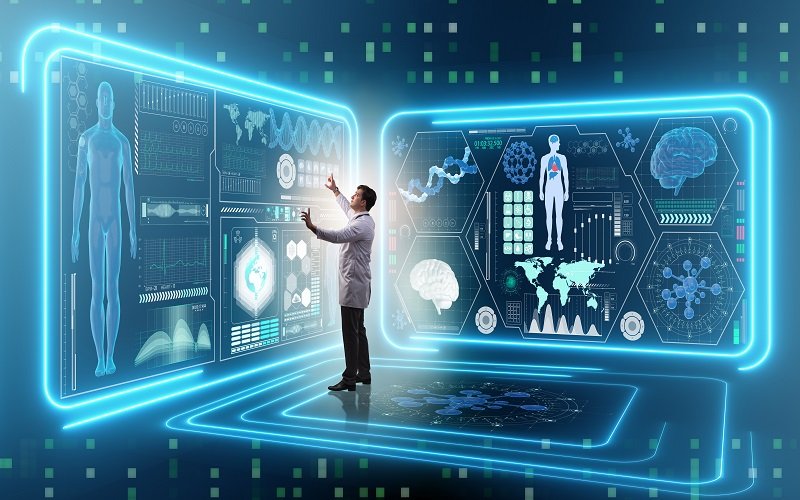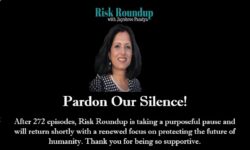Dr. Rajesh Balkrishnan, a Published Author of 350 Research Papers, Books and Book Chapters, and Professor of Public Health at the University of Virginia, School of Medicine based in the United States, participates in Risk Roundup to discuss “The Social Impact of COVID-19 Pandemic”.
The Social Impact of COVID-19 Pandemic
The COVID-19 pandemic is threatening human health and the lives of people across nations. Since this virus is highly contagious and is causing severe respiratory disease that is overwhelming public health systems, it is proving to be difficult to contain it effectively. Most nations and their governments have responded by declaring a public health emergency. They are also adopting known measures to prevent rapid infectivity and limit the disastrous impact of the viral outbreak. Despite that, the death toll is rising, and millions of lives have been significantly altered. There is no going back.
COVID-19 continues to transform daily life for everyone radically. As a result, there is a growing concern about health inequalities. Amidst the ongoing impact of the pandemic, this raises serious questions about the link between social determinants of health and health outcomes. So, it is essential to evaluate:
- How do we understand human health? What determines human health? Who is responsible for healthcare?
- How do we understand the disease? What determines the disease condition? Who is responsible for disease care?
It is generally believed that a lack of resources can have destructive effects on human health. Moreover, loneliness, personal responsibility, individual choices, and many such factors play an essential role in why the human body succumbs to any infectious diseases. While the choices we make individually are our own, the results impact others as everything is interconnected.
For instance, the COVID-19 pandemic has shown us how interconnected and vulnerable everyone is– and how much everyone’s well-being is dependent on not only what those around us do—but also on what we do ourselves. That brings us an important question: Do everyone, people of all age groups, and backgrounds understand what is needed to stay healthy and prevent getting viral infections—getting sick?
The reason is that self-care, personal hygiene, personal responsibility in our actions and inactions, the preventive and therapeutic measures each one of us takes individually against the COVID-19 outbreak can entail both risks and rewards for not just ourselves, but for everyone.
Evolving Social Crisis
The COVID-19 pandemic is attacking society at the core. This virus is killing not only people but also spreading human suffering and overturning people’s lives and triggering a societal crisis.
The outbreak is affecting all fragments of the population. It is not just the immediate impact; the far-reaching consequences of social implications are becoming a cause of great concern. The reason is the impacts of the COVID-19 virus seem to be exhibited disproportionately by people that are poor, older, have disabilities, and have some chronic health conditions such as hypertension, cardiovascular disease, and diabetes.
Why is that so? Is it because poverty, housing, access to healthcare, and all social determinants of health, contributes to the spread of viral diseases and negatively impact individuals and families already struggling? Perhaps, it is time to evaluate how we can incorporate social determinants in the healthcare equation. To be able to do that necessitates us understanding some critical questions:
- How are nations managing the social impact of COVID-19?
- How could interventions reduce the impact on healthcare systems?
- What is required for ensuring public health?
- Who is responsible for the health of communities?
- What intervention measures are available and should be accessible?
- How can we reduce the risk of developing distress?
- How can we improve our well-being?
- How can we promote preventive behaviors?
- What can policymakers do to improve public and clinical intervention systems?
- Should the social crisis be managed through effective policies?
- What is the role of the government?
- What is the way forward?
Perhaps, it is time for nations and all their components to come together and begin a discussion on how to manage the social impact of pandemics. Because if an outbreak affects one individual directly, the potential of many being affected grows exponentially. We are all connected, and we are all in this together for our survival as a species. The time is now to begin a discussion on the social impact of COVID-19.
For more, please watch the Risk Roundup Webcast or hear the Risk Roundup Podcast
About the Guest
Dr. Balkrishnan’s research program focuses on health services research and epidemiology related to global medical care access, focused on long-term pharmacological treatment of medical conditions. In particular, Dr. Balkrishnan has been recently focused on exploring issues related to adherence and quality of care in oncology, diabetes, and kidney disease in underserved populations. For nearly two decades, Dr. Balkrishnan has worked with the Medicaid program to understand issues of access to essential pharmacotherapies in low-income populations. Dr. Balkrishnan is a part of a research group that is exploring issues related to oncology care in rural Appalachia. In addition, he has served as a key co-investigator on large national studies such as the USRDS. Dr. Balkrishnan combines his expertise in health informatics, pharmacy, health services research, and biostatistics to create and analyze large data repositories that enable “real world” evaluations of the effectiveness of medical care. He is also involved in the development of several registries for non-communicable chronic diseases globally. He has performed several comparative effectiveness evaluations of technologies and treatments. Dr. Balkrishnan has published over 350 papers, books, and book chapters and has been recognized nationally and internationally for his expertise in effectiveness research and evaluation.
About the Host of Risk Roundup
Jayshree Pandya (née Bhatt), Ph.D., is a leading expert at the intersection of science, technology, and security and is the Founder and Chief Executive Officer of Risk Group LLC. She has been involved in a wide range of research, spanning security of and from science and technology domains. Her work is currently focused on understanding how converging technologies and their interconnectivity across cyberspace, aquaspace, geospace, and space (CAGS), as well as individuals and entities across nations: their governments, industries, organizations, and academia (NGIOA), create survival, security, and sustainability risks. This research is pursued to provide strategic security solutions for the future of humanity. From the National Science Foundation to organizations from across the United States, Europe, and Asia, Dr. Pandya is an invited speaker on emerging technologies, technology transformation, digital disruption, and strategic security risks. Her work has contributed to more than 100 publications in the areas of science and commerce. She is the author of the books, Geopolitics of Cybersecurity and The Global Age.
About Risk Roundup
Risk Roundup, a global initiative launched by Risk Group, is a security risk reporting for risks emerging from existing and emerging technologies, technology convergence, and transformation happening across cyberspace, aquaspace, geospace, and space. Risk Roundup is released in both audio (Podcast) and video (Webcast) format. It is available for subscription at (Risk Group Website, iTunes, Google Play, Stitcher Radio, Android, and Risk Group Professional Social Media).
About Risk Group
Risk Group is a Strategic Security Risk Research Platform and Community. Risk Group’s Strategic Security Community and Ecosystem is the first and only cross-disciplinary and collective community that is made of top scientists, security professionals, thought leaders, entrepreneurs, philanthropists, policymakers, and academic institutions from across nations collaborating to research, review, rate, and report strategic security risks to protect the future of humanity.
Copyright Risk Group LLC. All Rights Reserved





 COVID-19 Pandemic Preparedness
COVID-19 Pandemic Preparedness